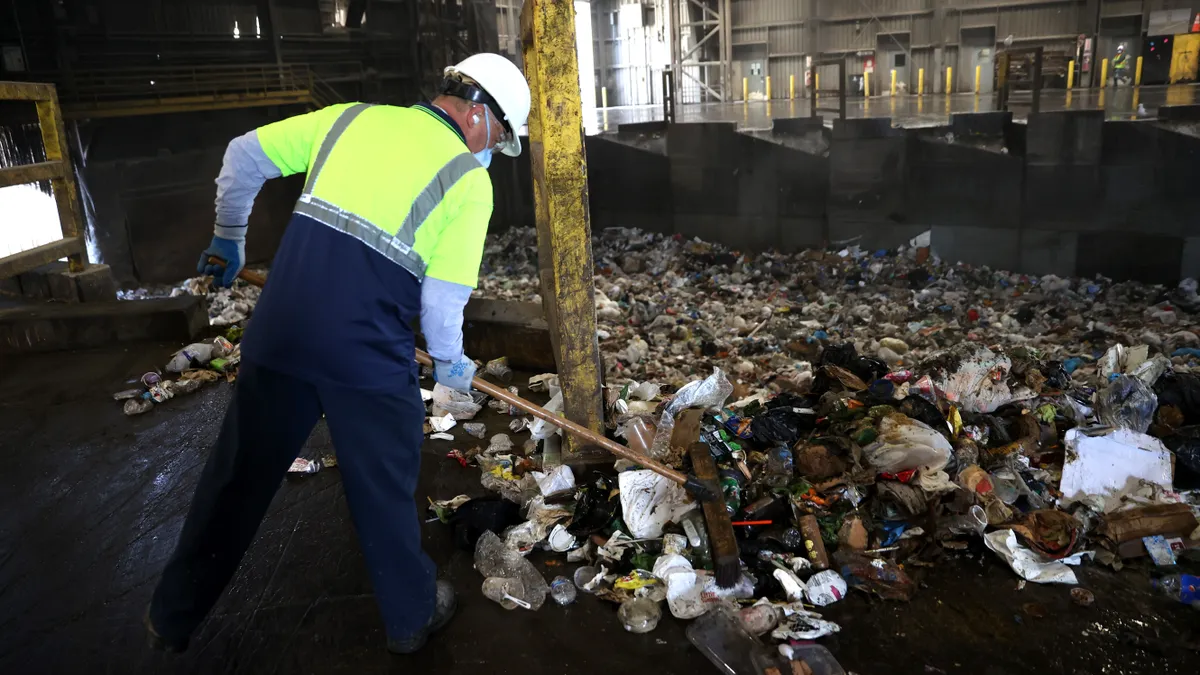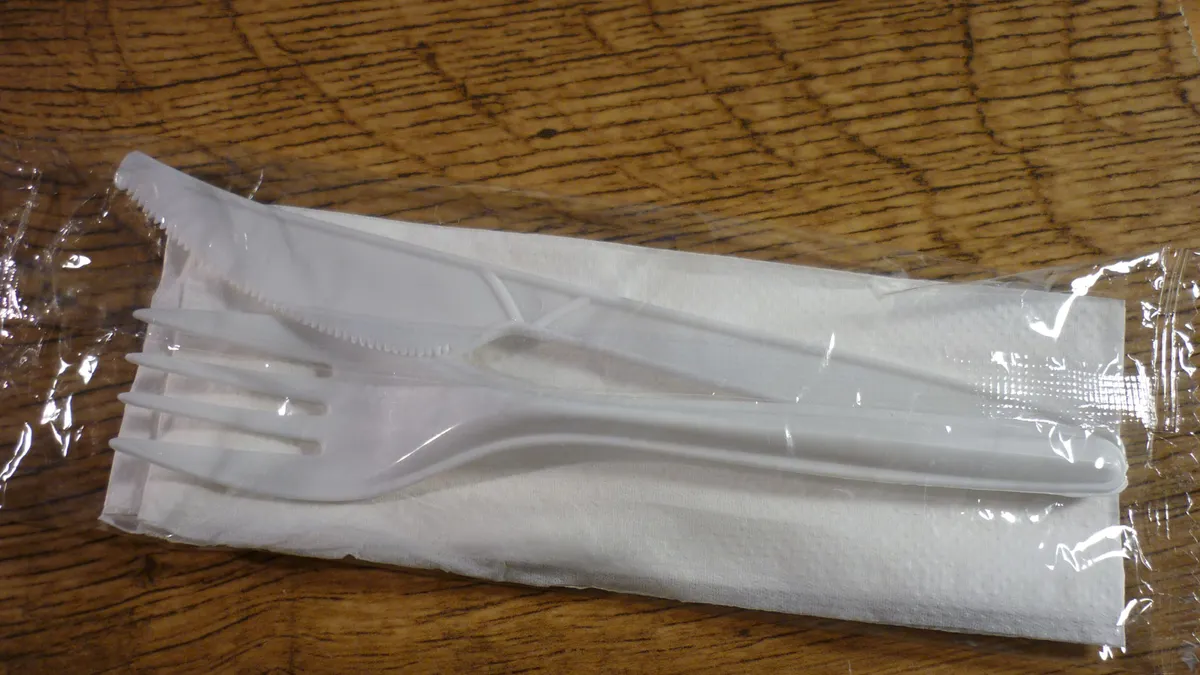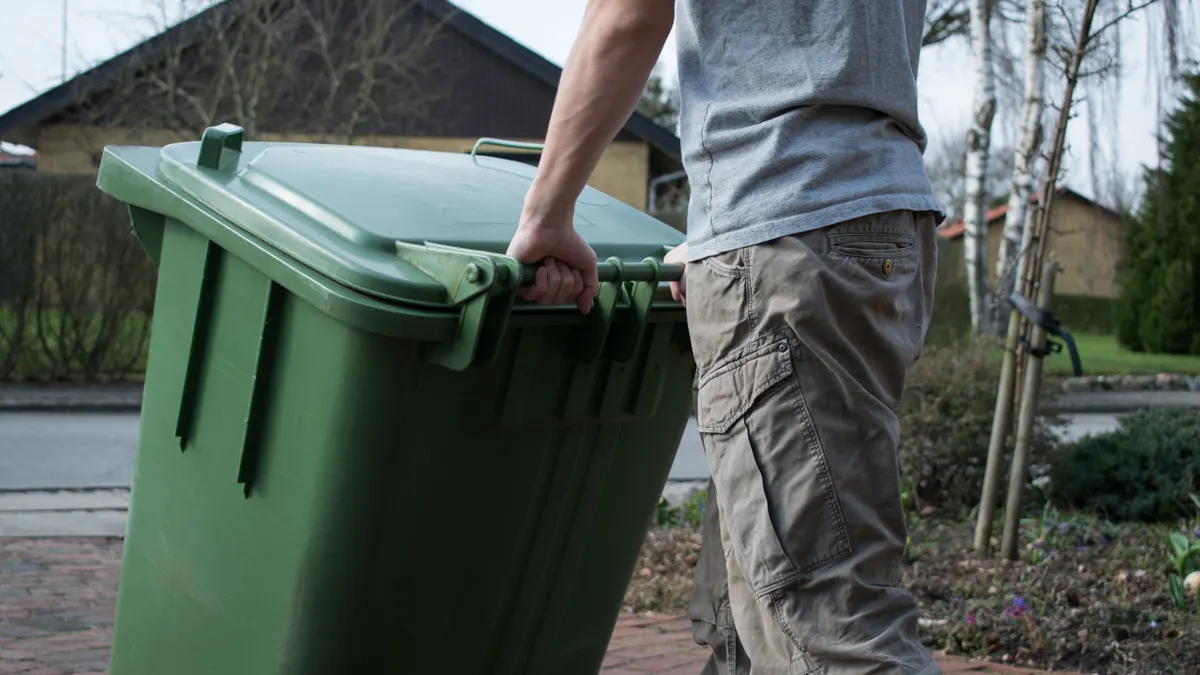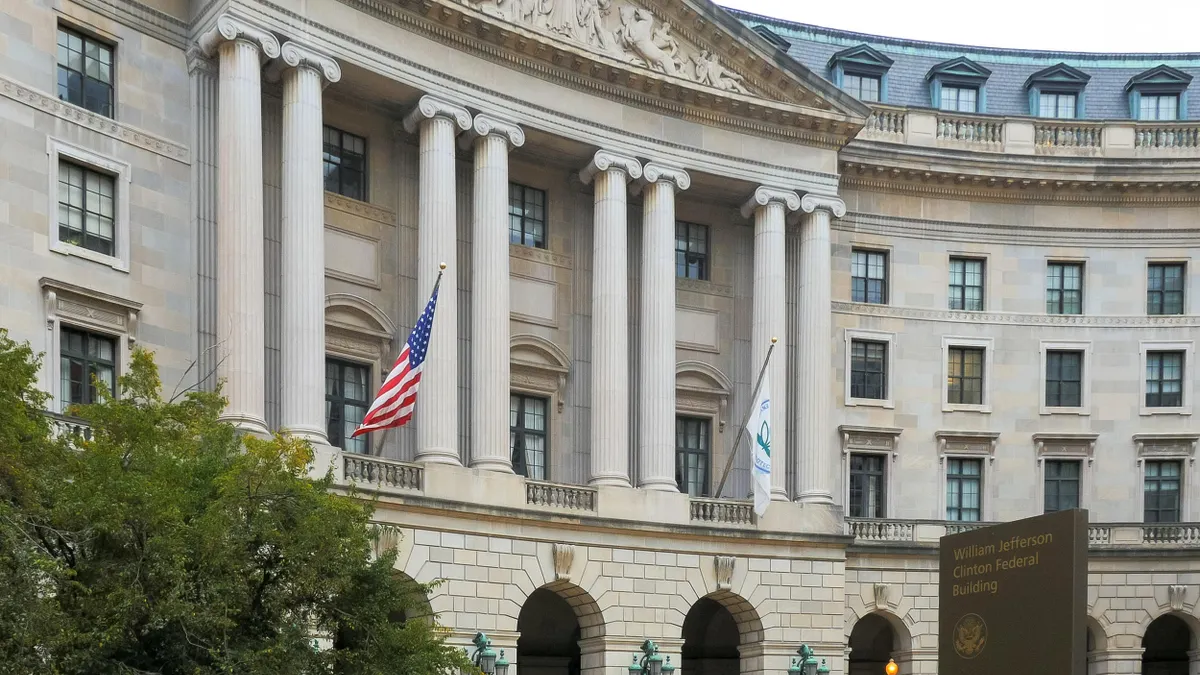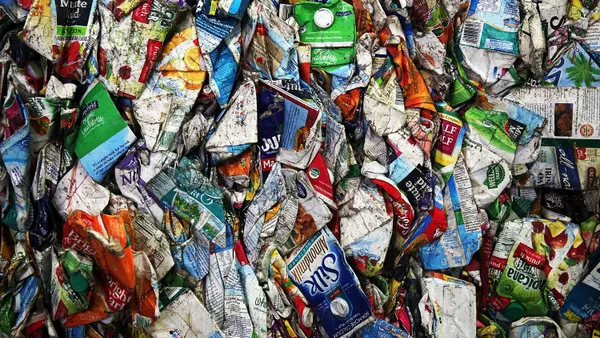Welcome to Scrap Collector, Waste Dive's Friday round-up of insights and stories you may have missed during the week.
MALAYSIA SENDING BACK POST-CHINA SCRAP IMPORTS
Malaysia is shipping some 3,300 tons of contaminated plastic scrap back to the U.S., U.K. Canada, Australia and other countries of origin, as reported by the Associated Press and others.
"Whoever sends their waste to Malaysia, we will send it back," Environment Minister Yeo Bee Yin told reporters on Tuesday, declaring the foreign shipments to be "garbage … traded under the pretext of recycling."
"Even though we are a small country, we cannot be bullied," she added. "Malaysians, like any other developing countries, have a right to clean air, clean water, sustainable resources and a clean environment to live in — just like citizens of developed nations."
Yeo's announcement should come as no surprise to anyone following post-China waste trends. In the wake of last year's ban, Malaysia, along with other Southeast Asian countries, became the world's foremost destination for plastic exports. The ensuing waste tide prompted Malaysia to impose a ban on further shipments — but, as covered in Scrap Collector, plastic scrap traders have concocted clever (and sometimes illegal) means of circumventing restrictions.
According to Jan Dell, founder of nonprofit The Last Beach Cleanup, the U.S. exported 3,310 metric tons of plastic scrap to Malaysia in March 2019 — with the bulk of shipments coming from New York City (32.7%), Los Angeles (26.6%) and San Francisco (13%).
That, according to Dell, is just the tip of the iceberg.
"In March 2019, the U.S. exported 60 million kg to 61 countries, with some going farther to new frontiers of Senegal, Bangladesh and Laos," she commented to Waste Dive via email. "Malaysia has received about 10 million kg (2,000 shipping containers) of plastic waste from the U.S. in the first three months of 2019."
"No U.S. city or citizen can look at the piles of waste in Malaysia and believe that we should be causing that, even inadvertently," Dell added. "From a business perspective, the harms caused by exporting plastic waste are a violation of company Codes of Conduct and creates a potential future liability for cleanup."
For David Biderman, executive director and CEO at SWANA, Malaysia's move is a cue for the U.S. industry to bolster its domestic infrastructure — a possibility discussed at this year's Plastics Recycling Conference.
"The announcement by Malaysia, coupled with the recent amendment to the Basel Convention that will make exporting recovered plastic more difficult in the future, should be a signal that we need more domestic markets for recovered plastic, and should be exploring a range of options for not only how to recycle plastic, but to reduce our consumption of plastic," Biderman wrote to Waste Dive.
Adina Renee Adler, assistant vice president of government relations and international affairs at ISRI, stressed to Waste Dive the distinction between contaminated waste and high-value scrap.
"Recyclable plastics in accordance with industry specifications are high-quality, highly-valuable commodities used in the manufacturing process," she commented via email. "The actions taken by the Malaysian government highlight the importance of responsible recycling, the use of specifications, and managing downstream processes. It is also critical to crack down on illegal operators within Malaysia that are attempting to import below quality materials."
IN OTHER NEWS...
Trash company protests lost Maryland county contract — The Washington Post
Unity Disposal and Recycling has a bone to pick with Montgomery County. The unionized company, which has provided service to Montgomery since 1996, recently lost a five-year contract to non-union Republic Services — despite the fact that Republic's final bid ($20.23 per home/month) was nearly $3 more than Unity's.
Members of the Laborers' International Union of North America (LIUNA), which represents Unity employees, protested the decision outside county executive Marc Elrich's office on Tuesday. The union had asked Elrich to intervene in March, informing him that 40 Unity workers would be laid off as a result of the Republic award. According to a spokesperson for Elrich, a contract review committee will issue a final decision on Unity's appeal.
Avinash Shetty, the county's procurement director, has dismissed the complaint, informing Unity earlier in May that Montgomery County "reasonably believes it will get more value for its money with Republic."
Still, Unity and LIUNA are standing firm in their challenge.
"Our point is, here, if you had run a fair and proper procurement, the union contractor would have won," said Brian Petruska, general counsel to the LIUNA Mid-Atlantic Regional Organizing Coalition. "We're just asking them to look at the merits."
AROUND THE WORLD
London mayor calls for an end to "archaic" incinerators — Bexley Times
U.S. incinerators have suffered a series of high-profile setbacks lately — and it appears that things may be heating up across the pond as well. In response to plans by Cory Riverside Energy to build a second plant in southeast London, London Mayor Sadiq Khan called on the government last week to stop permitting construction of "archaic" incinerators.
"London's air is a toxic air health crisis and the last thing we need, in our modern green global city is another harmful waste-burning incinerator polluting our city," Khan said in a report to the secretary of state for business. "Emissions from incinerators are bad for our health, bad for our environment and bad for our planet. Instead of granting permission for an unnecessary new incinerator that will raise pollution levels in the boroughs of Bexley and Havering, the Government should focus on boosting recycling rates, reducing the scourge of plastic waste and tackling our lethal air."
London, the mayor pointed out, has the highest incineration rate in the U.K. (54%) and the lowest recycling rate (30%). Adding another incinerator, according to a press release, would potentially jeopardize Khan's goal of "significantly reducing waste" and achieving 65% recycling of municipal waste by 2030.
Dougie Sutherland, CEO of Cory Riverside Energy, insisted that incinerators "are not the problem."
"Over two million tonnes of London's non-recyclable waste is currently sent to landfill or shipped overseas, so there is a capacity gap that urgently needs investment," he said. "Our proposed Energy Park will play a significant part in addressing this shortfall and will also deliver a sustainable waste management solution for London, increasing renewable, low carbon energy generation and reducing greenhouse gas emissions. We will not have any detrimental effect on recycling rates, or the recycling targets set in adopted and emerging policy."
SEEN & HEARD
Nature in full force today. A butterfly lands on @CMReynoso34's notes pic.twitter.com/kWiiYtVcGv
— danielle muoio (@muoiod) May 29, 2019
Me and my #MarleneDietrich voice on @TheTakeaway on Malaysia sending back #plasticwaste and also #Baselconvention fyi @NatureAtCal @JenIrisAllan @erin_bergren @ColeRosengren @StacyDVanDeveer (et al)https://t.co/vjQ8srPhdE
— Kate O'Neill (@kmoneill2530) May 29, 2019
@RecyclingAssoc Good talking to Simon this evening on the radio. I'd like to suggest a quick chat as to why landfill might be a better option environmentally than incineration when it comes to contaminated plastics/mixed wastes with high plastic content.
— Peter Jones (@PRL_Jones) May 28, 2019
Seriously??!! It’s 2019 and y'all are still releasing balloons like it's not just straight up littering? ???????????? Do you hate turtles?? ???? Cut it out, #Indy500. #PlasticPollutes (h/t @chadenelsen) https://t.co/KF7PInjNNF
— Dr. Ayana E. Johnson (@ayanaeliza) May 27, 2019







